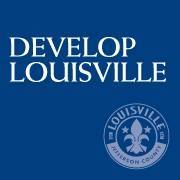 On Friday, November 16 at 11AM and Saturday, November 17 at 8PM the Louisville Orchestra welcomes guest conductor, Ken-David Masur to the Kentucky Center for a concert featuring Richard Strauss’ Oboe Concerto and celebrating veterans. Strauss composed his Oboe Concerto after meeting an American Soldier at the end of World War II. The soldier happened to be Pittsburgh Orchestra’s principal oboist, John de Lancie, who later became the director of the Curtis Institute of Music where he taught Richard Woodhams, who instructed our soloist, Alexander Vvedenskiy.
On Friday, November 16 at 11AM and Saturday, November 17 at 8PM the Louisville Orchestra welcomes guest conductor, Ken-David Masur to the Kentucky Center for a concert featuring Richard Strauss’ Oboe Concerto and celebrating veterans. Strauss composed his Oboe Concerto after meeting an American Soldier at the end of World War II. The soldier happened to be Pittsburgh Orchestra’s principal oboist, John de Lancie, who later became the director of the Curtis Institute of Music where he taught Richard Woodhams, who instructed our soloist, Alexander Vvedenskiy.
Single tickets range from $85 – $20* and are available by calling 502.584.7777 or by visiting LouisvilleOrchestra.org.
As Strauss’ work was inspired by a soldier, and this concert follows Veterans Day, the Louisville Orchestra will celebrate veterans in our community and offer all active-duty and retired military $10 tickets (up to 4) by using the code “THANKYOU” at checkout.
Strauss’ Oboe Concerto is reflective and lighthearted unlike his more familiar and dramatic work such as Also Sprach Zarathustra. This program also features Brahms’ Serenade No.1 and a contemporary piece, the space of a door by composer Eric Nathan.
The LO Concert Talk is free for ticket holders and will take place at 10AM on Friday and 6:45PM on Saturday in Whitney Hall. The Concert Talk will be led by 90.5 WUOL’s Daniel Gilliam with featured artist and LO principal oboe, Alexander Vvedenskiy.
Ken-David Masur Ken-David Masur, the next generation of the talented Masur family (his father Kurt was a noted-conductor), is making his mark as a bold and fearless conductor whose performances as Associate Conductor with the Boston Symphony are thrilling audiences.
Alexander Vvedenskiy Mr. Vvedenskiy became the Principal Oboist for the Louisville Orchestra in 2015. As a soloist and chamber musician, he has performed in numerous concert halls of Europe, Asia, and the United States and has appeared as Guest Principal Oboe with the New York Philharmonic, The Pittsburgh Symphony, and Chicago Symphony Orchestra.
 Mayor Fischer has announced today that Develop Louisville’s Office of Advanced Planning will issue a Request For Proposal to create a master plan for Broadway between Shawnee Park and Baxter Avenue. The city is seeking proposals that will transform the corridor, as envisioned by Move Louisville, from its existing auto-centric form into a multi-modal “complete street” designed to enable safe, convenient, and efficient access with a focus on premium transit that will serve as a catalyst for economic development.
Mayor Fischer has announced today that Develop Louisville’s Office of Advanced Planning will issue a Request For Proposal to create a master plan for Broadway between Shawnee Park and Baxter Avenue. The city is seeking proposals that will transform the corridor, as envisioned by Move Louisville, from its existing auto-centric form into a multi-modal “complete street” designed to enable safe, convenient, and efficient access with a focus on premium transit that will serve as a catalyst for economic development.
Move Louisville, the city’s long-range transportation plan, identifies Broadway as one of its 16 priority projects and recommends a complete street retrofit of the corridor. The entire length of Broadway (about six miles) from Shawnee Park to Baxter Avenue will be studied. The objectives for the Broadway master plan are to build upon the five guiding CHASE principles (Connected, Healthy, Authentic, Sustainable, Equitable) established as the framework for Plan 2040, the city’s comprehensive plan.
“From end to end, Broadway is diverse in people, culture, business and landscape. A ride starting at Shawnee Park and ending at Cave Hill Cemetery will offer anyone a remarkable look at Louisville’s diverse neighborhoods,” said Mayor Greg Fischer. “That ride though should be safer for people in cars, in buses, on a bicycle or on foot. The corridor is too car focused and has some of the city’s most dangerous intersections for car and pedestrian crashes. Broadway has tremendous potential for revitalization and economic development. My team envisions a Broadway – the same road Muhammad Ali was paraded down as champion and as icon – that is safer, more vibrant, and full of life along every neighborhood that touches it.”
“Broadway has a large footprint and a long history,” said District 4 Councilwoman Barbara Sexton Smith. “Everyone should feel safe on Broadway from Shawnee Park to the Highlands. I look forward to working together to build a better Broadway, one that is safer, more connected and open for economic development from end to end. Together we can do this.”
What we know today as Broadway was constructed in 1832 and was then named Dunkirk Road. By 1879, the road was 120-feet wide and stretched from the Ohio River to Baxter Avenue. The creation of Shawnee Park has since shortened the road in length. Over the next several decades, a boom in downtown made Broadway a focal point of the central business district. A streetcar line served the entire corridor from 1940 until 1966. It has long served as one of Louisville’s most iconic roadways, connecting Louisville’s eastern and western urban neighborhoods.
Over the past several decades, Broadway has evolved into an auto-centric corridor that is littered with surface parking lots and an under-performing built environment. The current roadway design prioritizes automobiles, promotes high vehicular travel speeds, and has led to unsafe conditions for all users, such as the high pedestrian crash rates near Jefferson Community Technical College and along the western parts of the corridor.
Broadway also provides critical transit access for the Transit Authority of River City (TARC). The #4, #18, and #23 TARC bus routes all offer frequent service along Broadway and give key connections to provide links to other routes for transfers. These three routes account for more than 5 million trips per year, which is about 40 percent of TARC’s ridership.
Despite its current insufficiencies, Broadway is beginning to show signs of revitalization. Numerous planning efforts and development projects that will directly impact the area are completed or are underway, and amplify the need to holistically plan for the corridor. These projects include two multifamily apartment complexes between Barret and Baxter avenues, the Paristown arts and entertainment district, Reimagine 9th Street, Dixie Highway Bus Rapid Transit, the 18th Street realignment, the Republic Bank Foundation YMCA, and the Passport Health Plan campus.
A consultant for the master plan will be selected in early 2019 and community engagement – which will occur in many forms and will involve residents, organizations and venues throughout the entire corridor – will take place through spring and summer 2019. A draft plan is expected to be available for public review in fall 2019, and a final document should be complete in spring 2020.
 Neighborhood residents in Metro Council Districts 6 and 8 have submitted more than 250 ideas to improve health and wellbeing in their neighborhoods through the Our Money, Our Voice project. Now volunteers are needed to help evaluate those ideas and prepare them for voting.
Neighborhood residents in Metro Council Districts 6 and 8 have submitted more than 250 ideas to improve health and wellbeing in their neighborhoods through the Our Money, Our Voice project. Now volunteers are needed to help evaluate those ideas and prepare them for voting.
Launched in August, Our Money, Our Voice is an initiative of the Metro Department of Public Health and Wellness’s Center for Health Equity, and Metro Council President David James (District 6) and Councilman Brandon Coan (District 8). People living in those council districts will decide how $150,000 ($75,000 in each district) will be spent.
“Ideas can be submitted until Nov. 2,” said Council President James. “In our next phase, we need volunteers to serve as community scientists and research the ideas we’ve collected for cost, feasibility, and equity. This work will then lead to those projects all residents can vote on to be funded.”
People interested in volunteering for this phase of the project are asked to attend the Our Money Our Voice Civic Innovation Institute on November 8 from 6 to 8 p.m. at the Louisville Metro Department of Public Health and Wellness headquarters at 400 E. Gray St.
“This is an important step,” said Councilman Coan. “At the Civic Innovation Institute, volunteers will also have an opportunity to build the kind of skills that will help them be able to directly influence how Metro government prioritizes the projects it funds in this pilot and beyond.”
Our Money, Our Voice is the name of Louisville’s participatory budgeting initiative – a way for members of a community to work together to better meet their needs while having a direct say in government decisions. In the process, people often find new ways of interacting with government and with each other to create solutions for all.
Funding for the initiative is coming from $100,000 in capital infrastructure funds ($50,000 from each district) and $50,000 from the Department of Public Health and Wellness.
District 6 neighborhoods participating in Our Money, Our Voice include Algonquin, California, Limerick, Old Louisville, Park Hill, Russell (the section north of Broadway Avenue, south of Plymouth Street, west of 22nd Street, and east of 26th Street), Taylor-Berry, University, and Victory Park.
Participating District 8 neighborhoods include Belknap, Bonnycastle, Cherokee Seneca – Alta Vista, Cherokee Triangle, Deer Park, Gardiner Lane – Upper Highlands, Hawthorne, Hayfield Dundee.
To volunteer, submit ideas or learn more about Our Money, Our Voice visit www.OurMoneyOurVoice.org.
 Mayor Fischer announced today that Develop Louisville’s Office of Advanced Planning has issued a Request For Proposal for the creation of a new Smoketown neighborhood plan. This neighborhood plan is expected to be complete by the end 2019 and is an update to the current Smoketown/Shelby Park Neighborhood Plan, which was adopted in 2002.
Mayor Fischer announced today that Develop Louisville’s Office of Advanced Planning has issued a Request For Proposal for the creation of a new Smoketown neighborhood plan. This neighborhood plan is expected to be complete by the end 2019 and is an update to the current Smoketown/Shelby Park Neighborhood Plan, which was adopted in 2002.
A neighborhood plan offers the community an opportunity to be proactive, to establish neighborhood goals, and to coordinate with public and private investment. Residents and businesses will be engaged throughout the process and are directly involved in creating the plan. The planning process allows a neighborhood to build shared values, goals, and objectives for the future of Smoketown. Staff will work with neighbors to emphasize the CHASE principles—connected, healthy, authentic, sustainable, and equitable.
“Louisville’s renaissance is spread across our city, particularly in our edge neighborhoods like Butchertown, Portland, Russell, and Smoketown, to name a few,” Mayor Greg Fischer said. “Neighborhood plans are a key for implementing the community’s vision. Updating the vision for the Smoketown neighborhood is critical to set a course for the neighborhood that embraces its history and prepares for future growth that includes current Smoketown residents and businesses.”
“Smoketown is a neighborhood filled with excited neighbors that I know are looking forward to making plans for the future of their neighborhood,” said District 4 Councilwoman Barbara Sexton Smith. “This process will allow the neighborhood to have a voice and a unified vision moving forward for future public and private investment in Smoketown.”
The Smoketown neighborhood, located southeast of downtown, is bordered by Broadway, South Floyd Street, East Kentucky Street, and Beargrass Creek. With much recent and upcoming public and private investment in the surrounding neighborhoods, this is an appropriate time to connect with residents and discuss the future of their neighborhood. Once the neighborhood plan is complete and adopted by Metro Council, it will be used as a guiding document for future public and private investment.
Community engagement will begin in 2019. The neighborhood plan is expected to be complete by the end of 2019.
 On Saturday, November 10 at 8PM, Principal Pops Conductor, Bob Bernhardt and YOUR Louisville Orchestra welcome Brass Transit to The Kentucky Center to relive the 70s and 80s with the horn-laden music of the legendary band, Chicago. Eight of Canada’s most talented and accomplished musicians will bring you back to the most memorable time of your life with some of the American rock band’s biggest hits such as “25 or 6 to 4,” “Saturday In the Park,” and “If You Leave Me Now.”
On Saturday, November 10 at 8PM, Principal Pops Conductor, Bob Bernhardt and YOUR Louisville Orchestra welcome Brass Transit to The Kentucky Center to relive the 70s and 80s with the horn-laden music of the legendary band, Chicago. Eight of Canada’s most talented and accomplished musicians will bring you back to the most memorable time of your life with some of the American rock band’s biggest hits such as “25 or 6 to 4,” “Saturday In the Park,” and “If You Leave Me Now.”
Individual tickets range from $85 – $27 and are available by calling 502.584.7777 or by visiting LouisvilleOrchestra.org.
Brass Transit goes far beyond just imitating the songs; they embody the music. They recently produced their first self-titled album, taking songs by other top artists from the seventies and recording them with horns in the CHICAGO style. The result is a fresh approach to some of the greatest hits of the era. They also recently scored their show for full symphony orchestra with original arrangements that are truly spellbinding. They have left crowds in awe and on their feet, evoking comments like “Spine-tingling,” “Brought me back to my youth,” and “Perfect in every detail.”
Principal Pops Conductor Bob Bernhardt continues to bring his unique combination of easy style, infectious enthusiasm and wonderful musicianship to the city and orchestra he loves. He’s been a constant presence with the Louisville Orchestra for the past 37 years; as Assistant and Associate Conductor, Principal Guest Conductor with Kentucky Opera, and now for 22 years as the LO’s Principal Pops Conductor. Bernhardt is concurrently Principal Pops Conductor of the Grand Rapids Symphony in Michigan, and Principal Pops Conductor and Music Director Emeritus of the Chattanooga Symphony and Opera, where he previously spent 19 seasons as Music Director and is now in his 27th year with the company. He is also an Artist-in-Residence at Lee University in Cleveland, TN.
 Fifteen students at Eastern High School scored among the top business students nationwide on rigorous exams to test their business knowledge. The exams are part of the school’s High School of Business™ program, a national accelerated business administration program of MBA Research and Curriculum Center. Approximately 8,000 students from across the nation participated in the program during the 2017-18 school year.
Fifteen students at Eastern High School scored among the top business students nationwide on rigorous exams to test their business knowledge. The exams are part of the school’s High School of Business™ program, a national accelerated business administration program of MBA Research and Curriculum Center. Approximately 8,000 students from across the nation participated in the program during the 2017-18 school year.
Receiving top scores were:
- Emily Kuprion, Business Economics
- Samuel Ackerman, Business Strategies
- Ali Id Lougssiyr, Business Strategies
- Morgan Dailey, Business Strategies
- Joseph Humphrey, Business Strategies
- Austin Stephens, Business Strategies
- Natalie Buie, Leadership
- Zachary Bivins, Leadership
- Luke Sullivan, Leadership
- Jasmine Warren, Leadership
- Matthew Mitchell, Principles of Business and Principles of Management
- Alec Shaw, Principles of Management
- Hunter Funk, Principles of Management
- Katherine Gerber, Principles of Management
- Nathan Potter, Wealth Management
Students participating in High School of Business™ complete real, hands-on business projects through a series of six courses. The program also includes observational internships, opportunities to earn college credit, and local oversight via a steering team of college faculty, business professionals, and school personnel.
High School of Business™ is a program of MBA Research, a non-profit organization specializing in educational research and the development of business and marketing curriculum for high schools and colleges across the U.S. The accelerated program is designed for college-bound students with interest in business administration careers, such as marketing, finance, entrepreneurship, or management.
For more information about the national organization, click on this link.
 The North American Championship Rodeo returns to Freedom Hall November 8-10 during the NAILE for the circuit finals of the Pro Rodeo Cowboys Association. A part of the Great Lakes Circuit Rodeo, participants represent many states in the region, including Kentucky, Indiana and Ohio.
The North American Championship Rodeo returns to Freedom Hall November 8-10 during the NAILE for the circuit finals of the Pro Rodeo Cowboys Association. A part of the Great Lakes Circuit Rodeo, participants represent many states in the region, including Kentucky, Indiana and Ohio.
The event features three nights of excitement as the best in each event compete over all three days to be named champion. There are seven events each night: bareback riding, bull riding, saddle bronc riding, barrel racing, steer wrestling, tie down roping, and team roping. In between events, attendees will be entertained by the rodeo clown and other acts throughout the night.
Tickets start at $10 and can be purchased online ahead of time. Children under the age of 2 are free. Friday, November 9, is Tough Enough To Wear Pink Night. Attendees are encouraged to wear pink to show support for the fight against breast cancer and a portion of the proceeds will be donated to Horses and Hope. Ticket prices do not include parking at the Kentucky Exposition Center, which is $10 per vehicle.
 Weather
Weather Traffic
Traffic @LouisvilleDispatch
@LouisvilleDispatch @LouisvilleDisp
@LouisvilleDisp Subscribe
Subscribe